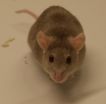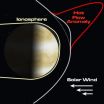(Press-News.org) Papillomaviruses (linked to cervical cancer when they infect the mucosal tissue in the female reproductive tract) can also infect normal skin, where they cause warts and possibly non-melanoma skin cancer, mostly in immune-suppressed organ transplant patients. An article published on February 20th in PLOS Pathogens suggests that vaccination might prevent virus-associated benign and malignant skin tumors.
Transplant recipients need to take immunosuppressive drugs for the rest of their lives to prevent rejection of the transplanted organ. Among the side effects of these drugs, widespread abnormal skin growths have large impact on the patients' quality of life. These can also progress to skin cancer, for which transplant patients have a 250-fold elevated risk. Sabrina Vinzón and Frank Rösl, from the German Cancer Research Center in Heidelberg, and colleagues sought to test whether papillomavirus vaccination around the time of transplantation could prevent the skin lesions seen in patients.
They used a rodent species (the multimammate mouse) as a unique pre-clinical model in which skin papillomaviruses are present and usually transmitted to young offspring. This mimics the situation in humans--most of us are infected with skin papillomaviruses as children and carry the virus in skin cells for the rest of our lives. However, these animals are more sensitive to the virus than humans with an intact immune system: most of them spontaneously develop benign skin tumors as well as malignant ones.
The scientists made a vaccine against the rodent skin papillomavirus that was modeled on the highly efficient and widely approved HPV vaccine against human papillomaviruses that protects against cervical cancer and genital warts. When they tested that vaccine in their animals, they found that vaccination completely prevented the appearance of benign and malignant skin tumors.
Vaccination does not eliminate the virus, but virus numbers in skin cells are much lower in the vaccinated animals, so the vaccine succeeds in educating and boosting the immune system in a way that it can keep the virus in check. Importantly, it can do so even in mice treated with immune-suppressive drugs.
Given that the vaccine works even when given to already infected animals, and continues to suppress the virus even when they are treated with immune-suppressive drugs--conditions that are similar to immunosuppressed patients who were infected with papillomaviruses as children--the scientists conclude that "these findings provide the basis for the clinical development of potent vaccination strategies against cutaneous [skin] HPV infections and HPV-induced tumors, especially in patients awaiting organ transplantation".
INFORMATION:
Funding: This work was supported by a grant from the Wilhelm Sander Stiftung (Fӧrderprojekt 2010.019.1), Munich, Germany. The funders had no role in study design, data collection and analysis, decision to publish, or preparation of the manuscript.
Competing Interests: The authors have declared that no competing interests exist.
Citation: Vinzón SE, Braspenning-Wesch I, Müller M, Geissler EK, Nindl I, et al. (2014) Protective Vaccination against Papillomavirus-Induced Skin Tumors under Immunocompetent and Immunosuppressive Conditions: A Preclinical Study Using a Natural Outbred Animal Model. PLoS Pathog 10(2): e1003924. doi:10.1371/journal.ppat.1003924
CONTACT:
Frank Roesl
e-mail: f.roesl@dkfz.de
phone: +49-6221-42-4900
Dr. Sabrina Vinzón
e-mail: s.vinzon@dkfz.de
phone: +49-6221-42-4922
IN YOUR COVERAGE PLEASE PROVIDE THIS LINK TO THE FREELY AVAILABLE PAPER:
http://dx.plos.org/10.1371/journal.ppat.1003924 (link goes live upon publication)
RELATED IMAGE FOR PRESS USE: http://www.plos.org/wp-content/uploads/2013/05/Pathogens_Roesl_Feb20_image.jpg
Caption: "Mastomys coucha rodents vaccinated against skin papillomavirus (MnPV) do not develop skin tumors, in contrast to unvaccinated animals."
Image Credit: Daniel Hasche
Skin tumor vaccine shows promise in wild mice, rising hope for transplant patients
2014-02-21
ELSE PRESS RELEASES FROM THIS DATE:
Many kidney disease patients experience hazardous events related to their medical care
2014-02-21
Washington, DC (February 20, 2014) — In addition to experiencing negative health effects from their disease, patients with chronic kidney disease (CKD) are also at risk of experiencing hazardous events potentially related to medical treatments they receive. A study appearing in an upcoming issue of the Journal of the American Society of Nephrology (JASN) finds that low blood sugar and high blood potassium being common complications of their medical care.
Patients with CKD are susceptible to experiencing harm related to the care they receive due to their impaired kidney ...
Biopsies before transplantation do not determine success of donated kidneys
2014-02-21
Highlights from two studies
Biopsy-detected injury in donated kidneys was modestly associated with a delay in organ function in the first week after transplantation, but only for donor kidneys already known to be at high risk. Donor kidney biopsies frequently underreported kidney injury with substantial variability.
There was a large degree of overlap between the results of biopsies from kidneys that were deemed unsuitable for transplantation and kidneys that were approved for transplantation. The quality of biopsies used in acceptance decisions was low.
Nearly 100,000 ...
Younger people, men and those without children more likely to drop out of HIV care in South Africa
2014-02-21
Analysis carried out by an academic at Royal Holloway, University of London has revealed that younger people, men and those without children are more likely to stop attending clinics for HIV treatment in South Africa.
Dr Michael Evangeli, from the Department of Psychology at Royal Holloway, worked alongside colleagues at the University of Southampton and the University of KwaZulu Natal, South Africa. The academics used data collected in a study, which is published in the journal PLOS ONE, that followed the progress of 380 HIV positive people eligible for HIV treatment ...
CNIO team explains lower cancer incidence rate in patients with central nervous system disesase
2014-02-21
Epidemiological studies demonstrate that diseases of the central nervous system such as Alzheimer, Parkinson and schizophrenia protect against cancer. The most remarkable example is Alzheimer's disease, which can reduce the risk of suffering from cancer by up to 50%. Various theories have been put forward in an attempt to explain this relationship between diseases at a first glance seem to be so different from the pharmacological, genetic and environmental perspectives. However, the available results were not consistent enough to confirm these models.
Alfonso Valencia, ...
NASA researcher finds planet-sized space weather explosions at Venus
2014-02-21
Researchers recently discovered that a common space weather phenomenon on the outskirts of Earth's magnetic bubble, the magnetosphere, has much larger repercussions for Venus. The giant explosions, called hot flow anomalies, can be so large at Venus that they're bigger than the entire planet and they can happen multiple times a day.
"Not only are they gigantic," said Glyn Collinson, a space scientist at NASA's Goddard Space Flight Center in Greenbelt, Md. "But as Venus doesn't have a magnetic field to protect itself, the hot flow anomalies happen right on top of the planet. ...
New apps may help detect seizures, treat strokes
2014-02-20
PHILADELPHIA – Two new smart phone applications may help people detect epileptic seizures and get better stroke treatment, according to two studies released today that will be presented at the American Academy of Neurology's 66th Annual Meeting in Philadelphia, April 26 to May 3, 2014.
In the first study, an epilepsy app was designed to help non-doctors determine if a person is having an epileptic seizure.
"It can often be difficult to determine whether someone is having an epileptic seizure," said study author Victor Patterson, MD, a neurologist from Belfast, UK. ...
Western University primatologist teams with international group to save lemurs
2014-02-20
Lemurs, the most endangered mammal group on Earth, represent more than 20 per cent of the world's primates. Native only to Madagascar, more than 90 percent of the species are threatened with extinction.
A Western University primatologist has teamed with 18 lemur conservationists and researchers, many of whom are from Madagascar or have been working there for decades, to devise an action plan to save Madagascar's 101 lemur species. The action plan contains strategies for 30 different priority sites for lemur conservation and aims to help raise funds for individual projects. ...
Vibration energy the secret to self-powered electronics
2014-02-20
MADISON — A multi-university team of engineers has developed what could be a promising solution for charging smartphone batteries on the go — without the need for an electrical cord.
Incorporated directly into a cell phone housing, the team's nanogenerator could harvest and convert vibration energy from a surface, such as the passenger seat of a moving vehicle, into power for the phone. "We believe this development could be a new solution for creating self-charged personal electronics," says Xudong Wang, an assistant professor of materials science and engineering at the ...
Study in mice raises question: Could PTSD involve immune response to stress?
2014-02-20
COLUMBUS, Ohio – Chronic stress that produces inflammation and anxiety in mice appears to prime their immune systems for a prolonged fight, causing the animals to have an excessive reaction to a single acute stressor weeks later, new research suggests.
After the mice recovered from the effects of chronic stress, a single stressful event 24 days later quickly returned them to a chronically stressed state in biological and behavioral terms. Mice that had not experienced the chronic stress were unaffected by the single acute stressor.
The study further showed that immune ...
Nanoscale pillars could radically improve conversion of heat to electricity
2014-02-20
University of Colorado Boulder scientists have found a creative way to radically improve thermoelectric materials, a finding that could one day lead to the development of improved solar panels, more energy-efficient cooling equipment, and even the creation of new devices that could turn the vast amounts of heat wasted at power plants into more electricity.
The technique—building an array of tiny pillars on top of a sheet of thermoelectric material—represents an entirely new way of attacking a century-old problem, said Mahmoud Hussein, an assistant professor of aerospace ...



